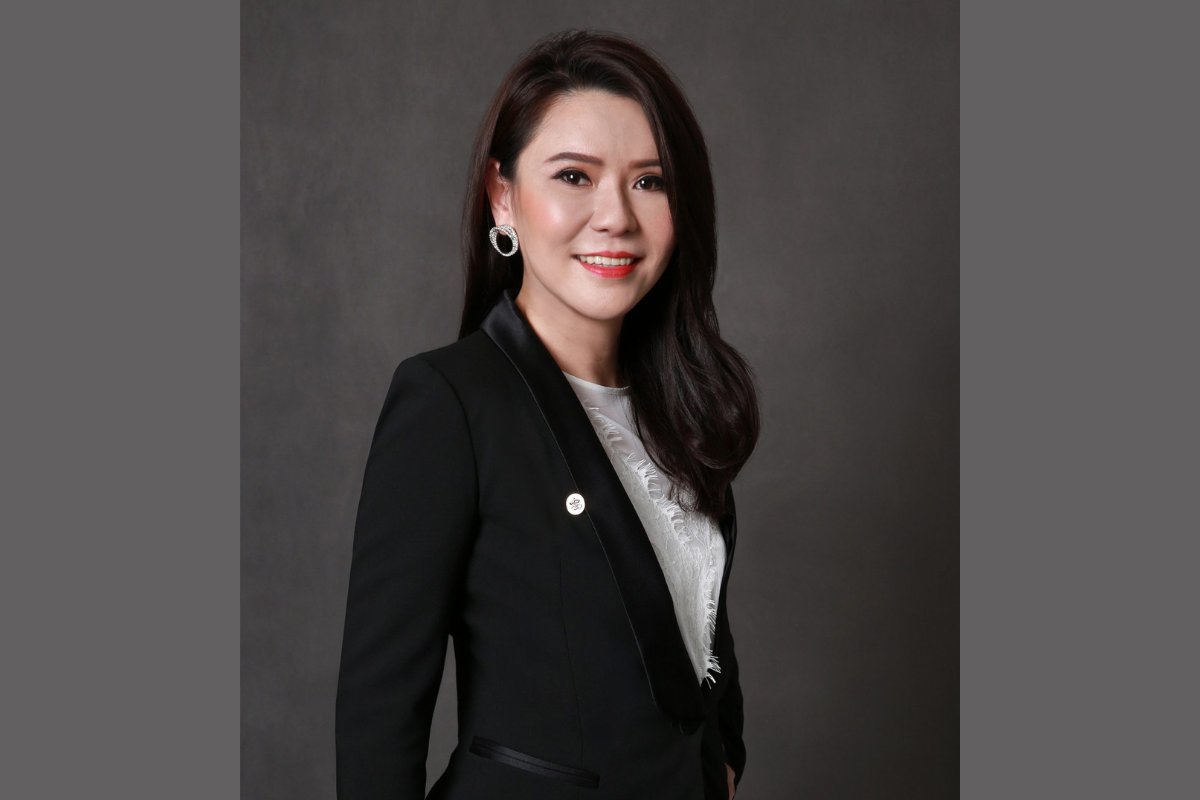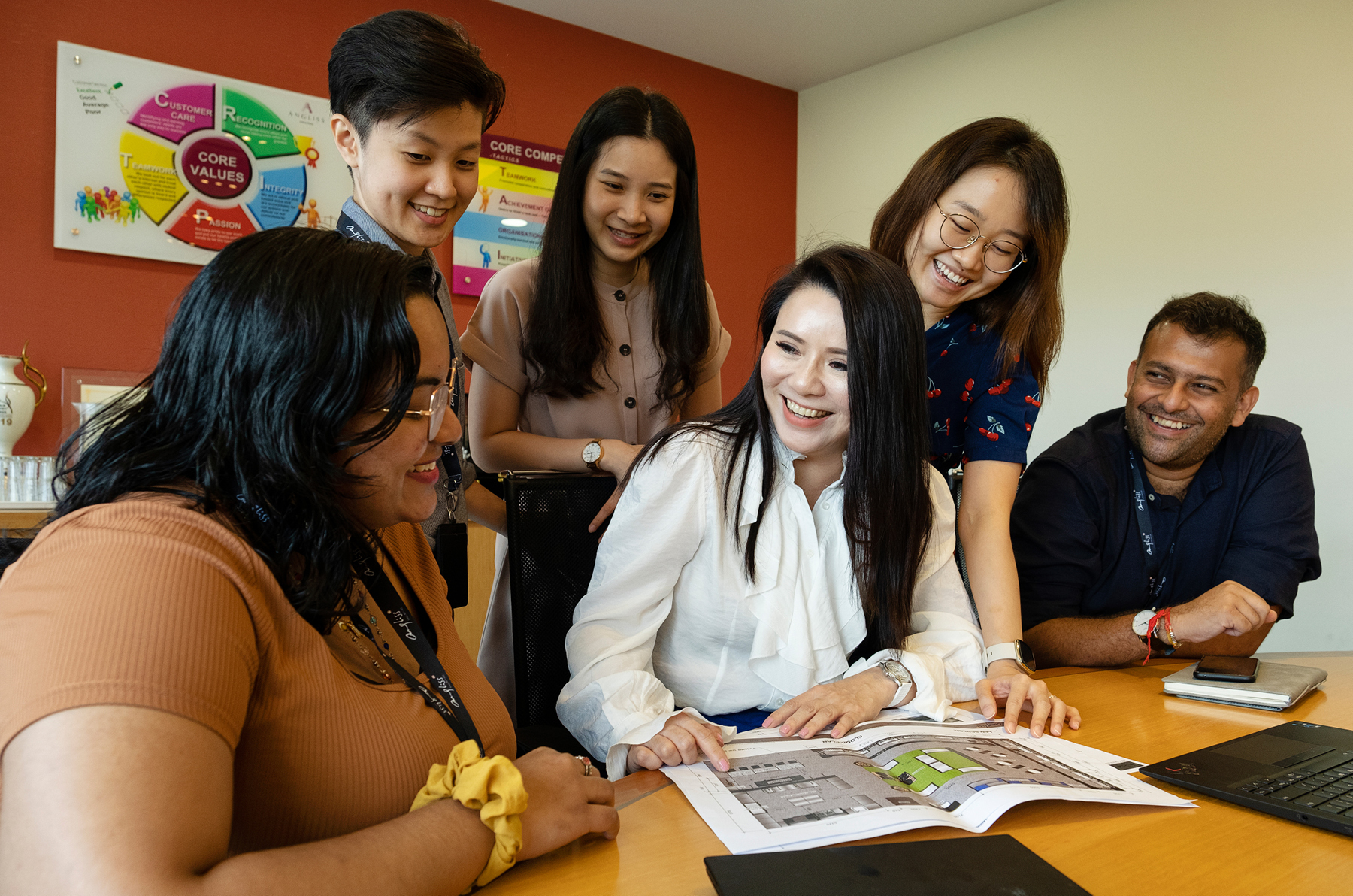Keeping it Simple: Angel Ding
Angliss Singapore Managing Director Angel Ding puts a priority on simplicity. But that attitude belies a sophisticated approach to the food service business, which provides top quality products with service and added value for customers.
Angel Ding has a preference for simplicity. As Managing Director of Angliss Singapore – the country’s premier food distribution company – she also puts a priority on communications, treating people properly and, above all, passion for the company and industry.

"I like everything to be simple," Angel tells The CEO Magazine. "It means I’m not a politician. I’m not giving commands or telling people: ‘What I say is correct.’ I always believe in being simple, having a passion and being accountable. You must be human. You must have good communication skills with your people."
Angliss, of course, is no simple business. As a food service company it plays a critical role in Singapore’s economy; the small island nation has a tiny agricultural sector and its food security depends on maintaining steady imports of foodstuffs.
The company headquarters rises to the challenge, being equipped with refrigerated space for 5,000 tonnes of product, along with processing facilities and an on-site test kitchen. Angliss supplies the finest hotels and restaurants, but it also serves supermarkets, airline kitchens, overseas resorts and cruise ships. It has also innovated digitally with an entry into online consumer sales with home delivery.
Service with understanding
Service is key, according to Angel, with Angliss staff putting themselves in the shoes of their clients to provide added value and understand each customer’s unique needs.
"We don’t act as distributors. We don’t think about making money first. We think about what they need," Angel says. "We need to think: ‘What is the perspective that I need to put myself in, to understand this operator or the owner?’"

I always believe in being simple, having a passion and being accountable. You must be human. You must have good communication skills with your people.
Angliss has put a priority on quality and service from the start. The firm was founded in 1948 by the Vestey family – originally from Liverpool, UK – under the name The Malayan Refrigerating Company. It was famed for its butchery business and quality beef imports from its farms in Australia, New Zealand and Brazil. Then in the 1990s Angliss moved into the distribution of a broader range of products from an array of suppliers, and divested its farms.
The company was acquired by the International Bidvest Group and became part of Bidvest Asia Pacific in 2008. It now operates in Australia, New Zealand, Hong Kong, China, Malaysia, Macau and Singapore.
Transforming a commodity company
Angel started with Angliss in 1999, coming from an engineering background. She confesses not bringing a robust background in food or food service. "I’m not even a foodie," she reveals.
But she enjoyed the work and believed there were opportunities for growth. "I believe that throughout my journey with Angliss I have been given a lot of opportunity to grow with the company," she says.
There was also the experience of joining a company in the process of transforming itself, and she speaks proudly of representing its "fourth generation" of leadership.
"When I joined this company, it was a commodity company, where there was talk about buying and selling," she recalls. "We have transformed ourselves from commodities, basically a buying and selling company, to really a food service company."
Being a modern food service company involves much more than simply being a supplier or a distributor. It involves sourcing the best products, according to Angel, along with doing proper due diligence to ensure ethical and quality standards are met.
We have transformed ourselves from commodities, basically a buying and selling company, to really a food service company.
"We play a very, very big part in assessing our suppliers and making sure there are no shortcomings in compliance on food safety, child labour or any illegal dealings," she stresses.
The emphasis on ethical sourcing can mean carrying out assessments of new suppliers and audits of supply chains. Angel describes how on an upcoming trip she plans to enquire into where the resources come from and if there are any unethical practices. "We go downstream and understand where the production is, where the factory is. We also talk to the managers," she says.
Angliss’s 74-year history has helped it build strong supplier relationships. But it is also being proactive in ensuring access to top-quality products and bringing an increasing supply of sophisticated offerings to the marketplace. Angel points to urban farming projects – backed by Angliss – that supply bounties such as microgreens and edible flowers.
"All these small little things we have done, it’s very different from our competitors," Angel says.
Opportunities in crisis
Another innovation came from the COVID-19 pandemic experience – which Angel describes as a crisis-producing opportunity. At the time people were cooking at home and sheltering in place as restaurants and workplaces were closed. Angliss had been working on an e-commerce platform, but the pandemic quickened the process; the business was quickly able to introduce Angliss Marketplace, a premium online store offering home delivery.
During this time, Angliss also saw a need in the market for a one-stop solution food purveyor, and stepped up to fill that role. The company’s divisions expanded to include an extensive halal range, and birthed a whole new division focused on baked goods.
The pandemic was also an opportunity for Angliss to show its commitment to staff. Angel says staff were given the opportunity to return home prior to borders being closed, but many chose to stay.
We realise that the assets of the company are not based on how much we have made and what the revenues are, but who we have groomed for leadership and their talents.
The treatment of its staff is a reflection of the ‘kampung spirit’ in Singapore, according to Angel, which highlights a sense of harmony and solidarity among people. It’s also a reflection of leadership, she says.
"You always must have a certain respect first," she explains. "I always believe that you can have the best training in the world and wonderful ideas, but without having emotional intelligence and respect from your team, you will never be a great leader."
Angel’s own approach to leadership extends to wanting the best for employees personally and professionally – even feeling proud when they receive opportunities with other companies. She also looks to groom talent for the next generation of Angliss leadership.
"We realise that the assets of the company are not based on how much we have made and what the revenues are, but who we have groomed for leadership and their talents," she says. "Besides the talent in the company, what is their wellbeing? You are making profits for the company, but how you can take care of your colleagues? How can you contribute to society?"
Proudly supported by: